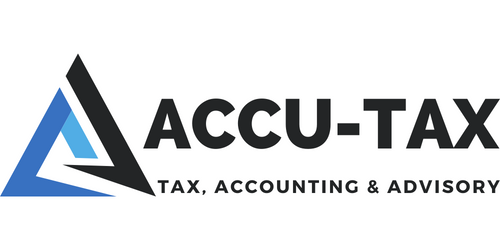![]() How to Avoid IRS Red Flags When You’re Self-Employed
How to Avoid IRS Red Flags When You’re Self-Employed
When you’re self-employed, you enjoy the freedom of running your own business—but you also take on full responsibility for managing your taxes. Because self-employed individuals often have multiple income sources and deductions, the IRS pays close attention to their tax filings. Certain mistakes—or overly aggressive tax positions—can increase your audit risk.
Here’s how to avoid common IRS red flags and keep your return accurate, compliant, and stress-free.
- Report All Your Income
Red Flag: Underreporting income, especially when IRS records (like Forms 1099-NEC, 1099-K, or 1099-MISC) don’t match your return.
How to Avoid:
- Report all income, even if you don’t receive a 1099.
- Keep records of cash, check, and electronic payments.
- Remember, the IRS receives copies of every 1099 you’re issued and matches them to your Social Security or EIN.
👉 IRS: Understanding 1099-K Reporting
- Separate Business and Personal Expenses
Red Flag: Mixing personal and business expenses or claiming personal costs as business deductions.
How to Avoid:
- Maintain separate business bank accounts and credit cards.
- Deduct only expenses that are both ordinary and necessary for your business, per IRC §162(a).
- Keep receipts and digital copies for all purchases.
- Be Cautious with the Home Office Deduction
Red Flag: Claiming a home office without meeting IRS requirements.
How to Avoid:
- The workspace must be used exclusively and regularly for business.
- It must be your principal place of business or where you meet clients.
- Keep photos or a simple floor plan as documentation.
- Deduct Car and Travel Expenses Properly
Red Flag: Overstating vehicle, travel, or meal deductions—or claiming commuting costs.
How to Avoid:
- Deduct only the business-use portion of car expenses.
- Keep a mileage log (date, destination, purpose, and miles).
- Commuting to your regular workplace is not deductible.
- Meals are 50% deductible; entertainment expenses are not deductible.
👉 IRS: Deducting Business Expenses
- Avoid Excessive or Unsubstantiated Deductions
Red Flag: Deductions that seem unusually high for your income level or industry.
How to Avoid:
- Compare your deductions to industry averages.
- Keep receipts, invoices, and proof of payment.
- Only deduct expenses that are directly related to your business and supported by documentation.
- Correctly Classify Workers
Red Flag: Misclassifying employees as independent contractors to avoid payroll taxes.
How to Avoid:
- Know the difference between an employee and an independent contractor.
- The IRS considers behavioral control, financial control, and the nature of the relationship.
- If you control how, when, and where someone works, they’re likely an employee.
👉 IRS: Independent Contractor (Self-Employed) or Employee?
- File and Pay Taxes on Time
Red Flag: Filing late, paying late, or skipping estimated tax payments.
How to Avoid:
- File your return and pay taxes by April 15 (for most taxpayers).
- If you expect to owe $1,000+ in tax, make quarterly estimated payments.
- Use IRS Direct Pay or EFTPS to pay securely online.
- Keep Good Records
Red Flag: Missing or incomplete documentation to support your return.
How to Avoid:
- Keep records of income, receipts, mileage logs, and invoices for at least three years.
- Use cloud-based accounting software or spreadsheets.
- Organize documents by year and expense category for easy retrieval.
👉 IRS: Recordkeeping for Small Business
- Steer Clear of Abusive Tax Schemes
Red Flag: Participating in “too-good-to-be-true” tax avoidance schemes or following unverified advice.
How to Avoid:
- Avoid promoters who promise large or “guaranteed” deductions.
- The IRS routinely investigates and prosecutes abusive tax schemes and their participants.
👉 IRS: Abusive Tax Schemes and Promoters
- When in Doubt, Consult a Professional
Tax law is complex—and the self-employed face unique challenges. If you’re unsure about a deduction, worker classification, or recordkeeping requirement, consult a qualified CPA or tax professional. Expert advice can help you stay compliant, reduce your tax burden, and avoid costly penalties.
Bottom Line
The best way to avoid IRS red flags is to stay honest, organized, and proactive.
Report all income, claim only legitimate deductions, keep excellent records, and pay your taxes on time. By following these best practices, you’ll reduce your audit risk and keep your business running smoothly.
Need Help Navigating Self-Employment Taxes?
Contact us, we specialize in helping self-employed professionals and small business owners stay compliant while maximizing deductions.
Whether you need help with bookkeeping, quarterly estimates, or tax strategy, we’ll help you stay audit-ready and financially confident.
External References

